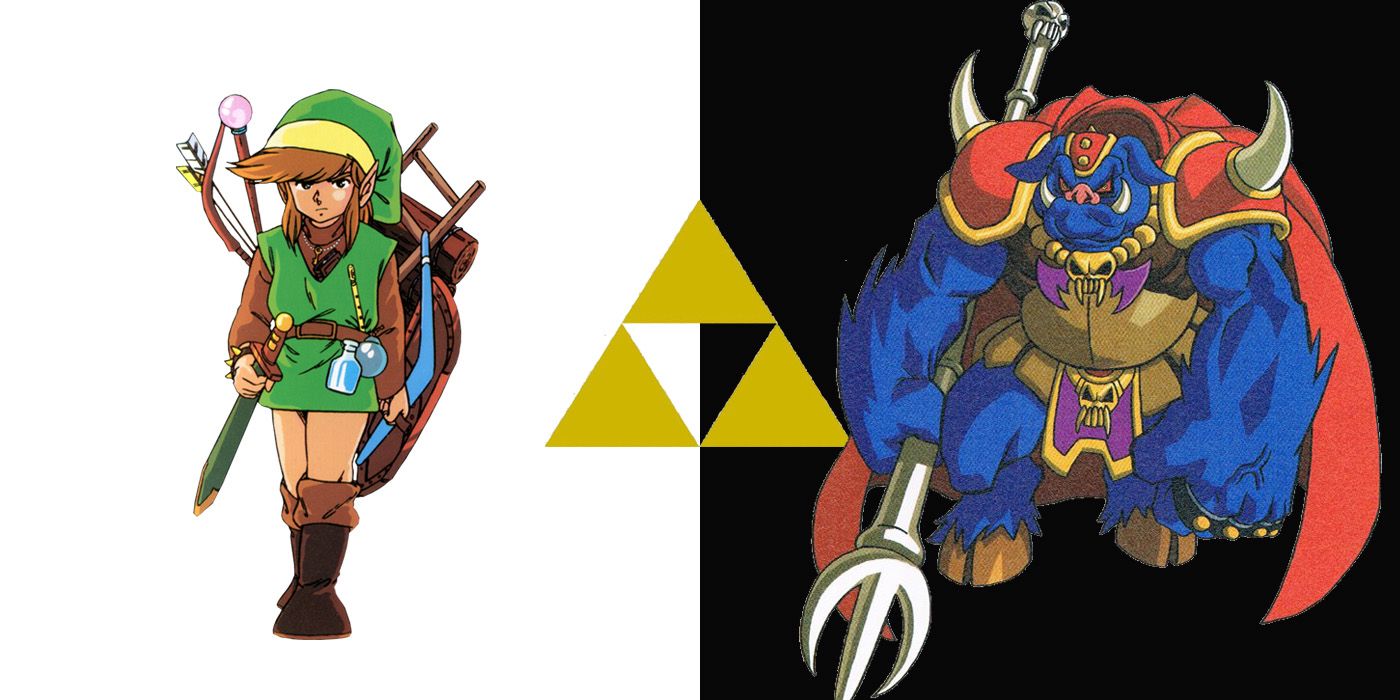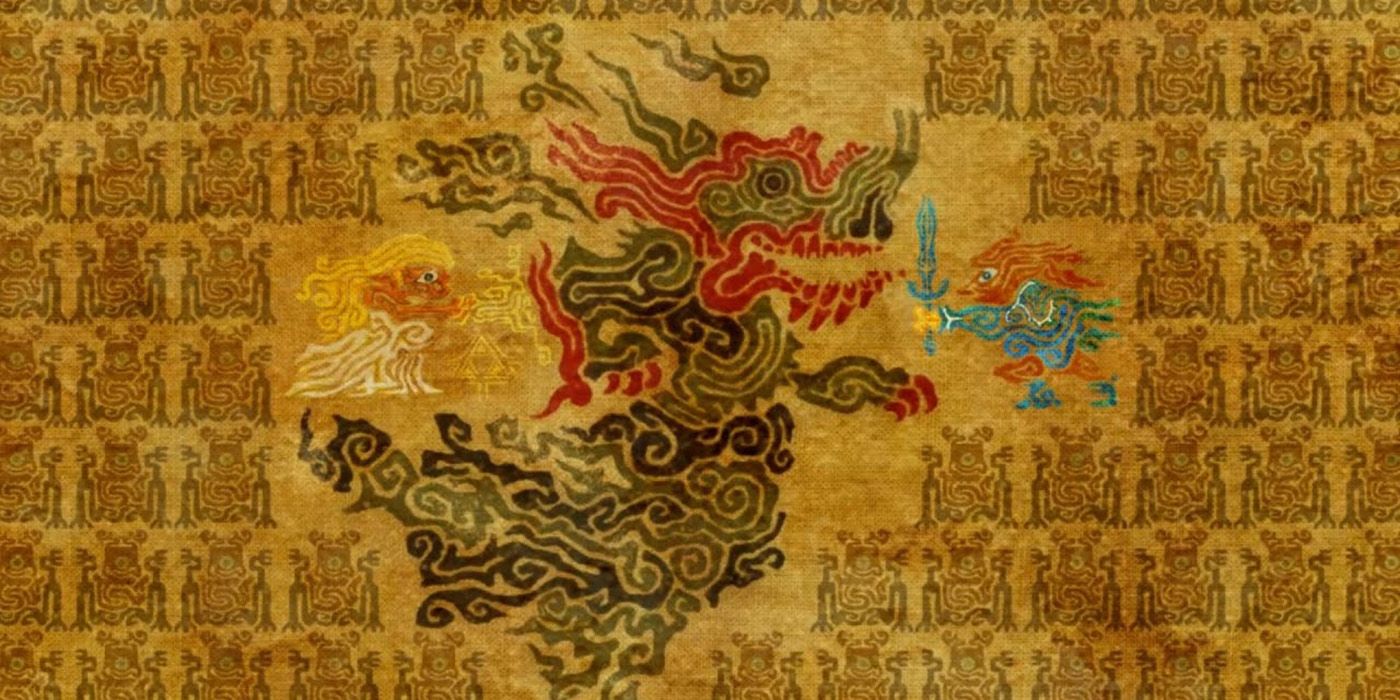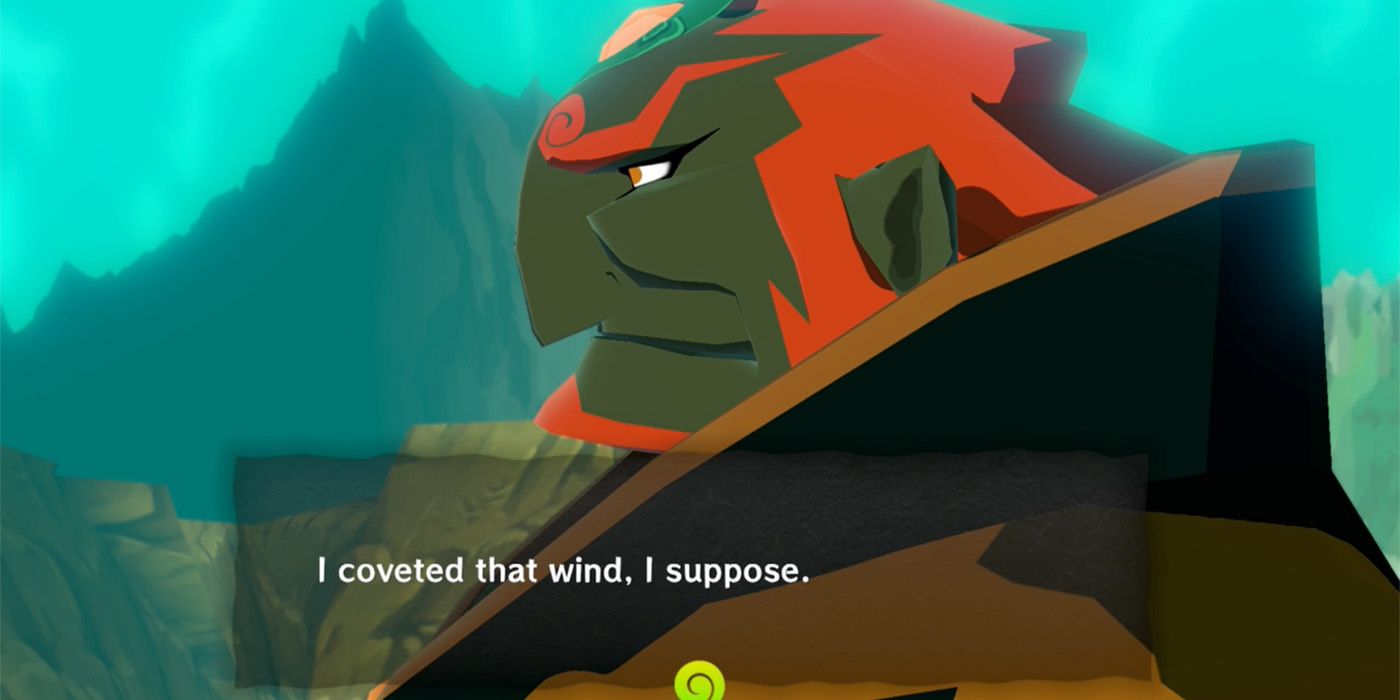
Sherlock Holmes has Dr. Moriarty, Batman has the Joker, and Link has Ganon. It is rare to find characters that form such powerful hero-villain dyads, but a compelling relation that can endure from work to work and still keep readers/viewers/gamers coming back for more is a unique trait. While fans may question if Ganon needs to be the main antagonist for Link to square off against in every Legend of Zelda game, there is no doubt that he provides narrative and thematic balance to the story.
Long before the official Legend of Zelda chronology was revealed and before video games began to mimic cinema with deeper characterizations and narratives, Ganon was simply the "Big Bad" at the end of the game, an evil demon bent on the destruction of Hyrule with cult-like followers. In The Legend of Zelda: A Link to the Past, fans got their first taste of something more, where Ganon's side of the story builds. This games shows the thief banished to the Sacred Realm corrupted by evil magic, plotting his revenge. It's here where the relationship between Link and Ganon begins to take on mythic literary proportions.
RELATED: Every Version of Ganon From The Legend of Zelda Series, Ranked

The question fans of The Legend of Zelda ask isn't if Ganon will appear, it's when. In some games, Ganon appears early on, like in Ocarina of Time; other times, he hides behind another figure before revealing himself, as was the case in Twilight Princess. That it is always Ganon who makes an appearance in a Zelda game may seem played out, but Ganon is more than simply a character, he is the embodiment of evil. While Ganon does have deep characterization established over the course of the series, he ultimately serves as a metaphor for a universal, unending, and unyielding evil.
Ganon's desire for revenge in Link to the Past turned the Sacred Realm into the Dark World; in Skyward Sword, the Demon God Demise declares that "an incarnation of his hatred" will be reborn and seek retribution; and in Wind Waker, Ganondorf covets the gentle, healing winds of Hyrule. Ganon is associated with these negative emotions, and these emotions are presented to the hero/player as a blight or corruption of Hyrule at large. Ganon doesn't even say a word in Breath of the Wild, but the spread of Malice—which the player sees throughout Hyrule as a poison infecting the Kingdom—shows the player visually how these emotions fester.

Where Nintendo has done an excellent job with Ganon is in the building of his backstory. In some cases, Ganon is just an entity of pure evil, but on occasion, the player is meant to really pay attention to what drove Ganon to his evil ways. This usually happens when Ganon assumes his Ganondorf form, as some are predicting he might for Breath of the Wild 2.
In Wind Waker, Ganondorf reaches peak sympathy, evoking a feeling of conflict within the player, which is also visually shown on Link's face during the final confrontation. Ganondorf tells Link of the harsh life he endured in the Gerudo desert, of a wind that brought only death. That he would see the winds of Hyrule bringing life to green fields and want that for himself makes him relatable. Yes, in pursuit of that wind he coveted, Ganondorf brought destruction to Hyrule, but hearing why he did what he did leaves the player and Link with mixed feelings.
Using Ganon to tackle a morally grey area is something that Nintendo could tease out in future installments of the Legend of Zelda franchise. Cases like Wind Waker show the nuanced form that evil or negative, harmful emotions can take, and how the franchise can still keep the same Link/Ganon dynamic without presenting the evil threat as comical or bombastic.
The relationship between Link and Ganon is so powerful because it explores the age-old literary fight between good and evil, light and dark. Their relationship anchors the stage on which the franchise is set, and the characters act as metaphors for the good and bad in all humanity. While Link could face off against a new villain, the power of the Link/Ganon relationship to draw the player in and establish the themes of the game in relatable terms is why the relationship between the two can never die.
The Legend of Zelda: Breath of the Wild 2 is in development for the Switch.
MORE: How Demise's Curse Could Impact The Legend of Zelda: Breath of the Wild 2

